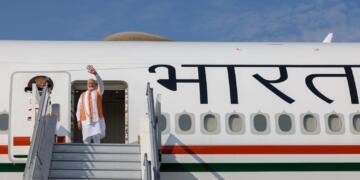Sudan’s transitional government, which was placed at the helm of affairs subsequent to the coup d’état against former Sudanese dictator Omar-al Bashir in 2019 has now moved to separate religion and state, effectively adopting secularism as a state policy, laying out the path for Sudan’s democratic revival. The official separation of state and religion comes after 30 years of catastrophic Islamic rule in the North African country. Sudanese Prime Minister Abdalla Hamdok and Abdel-Aziz al-Hilu, leader of the Sudan People’s Liberation Movement-North (SPLM-N) rebel group, signed a declaration in the Ethiopian capital, Addis Ababa, on Thursday adopting the principle, Bloomberg reported.
“For Sudan to become a democratic country where the rights of all citizens are enshrined, the constitution should be based on the principle of ‘separation of religion and state,’ in the absence of which the right to self-determination must be respected,” the document states. Notably, the historic declaration also goes on to pave the way for self-determination in those areas of the country where such separation of state and religion is not followed. The transitional government of Sudan has therefore made the prospect of many South Sudan-like countries emering out of present-day North Sudan, in the event secularism fails to be followed in letter and spirit in the country.
Sudan has come a long way to finally move forward with a separation of religion and state. Under an extreme Islamic rule guided by the norms of Sharia, Sudan has faced massacres, genocide, economic obliteration and even breakage of its southern portion in 2011, which we now know as an independent South Sudan. Being a part of the infamous Sahel region of Africa, turbulences of all sorts come naturally to the country, along with ethnic and sectarian tensions often leading to violence. While South Sudan has Christians in majority, another reason why it parted ways with North Sudan in 2011; the latter has a Muslim population of over 70 per cent.
Sudan, under its dictatorial Islamic rule was found to be dealing with terror groups such as Al Qaeda, and even hosting Osama Bin Laden for quite some time. In the 90’s, Hassan al-Turabi, then Speaker of the National Assembly, reached out to many Islamic fundamentalist and terror groups. As a consequence, the country was declared a state sponsor of terror by the US, and also earned itself a spot in the FATF’s blacklist. It managed to escape the FATF blacklist in 2015, even as efforts for global acceptance by a US-led world order are progressing full throttle.
It is for the same purpose, of being perceived by the US and other superpowers as a reformed nation, that Sudan is undertaking a deradicalization drive. Islamism is being shunned by the government at least, even if not by the Black-Arabs of the country who may be beholden to the Saudis and their Salafi/Wahabi ideologies, which by the way, considesr ‘blacks’ as no more than sub-humans.
Sudan recently, in July, placed a ban on the inhuman practise of female genital mutilation as well, which is an Islamic practise highly prevalent in the Horn of Africa and also some Arab nations. The decision by Sudan to place a ban on FGM was also in line with its recent approach of shunning extremism for gaining worldwide sympathy and acceptance as a country pacing towards full democracy.
Also eyeing a removal from the US’ terror blacklist, Sudan is moving past the traditional north-south divide which is seen in countries placed in the Sahel region, which majorly revolves around sectarian divides and tensions between the Muslims from the North and Christians from the South. The economy of Sudan had slumped post-2011, when a departing South Sudan took a major part of the erstwhile united country’s oilfields along with it. US sanctions had further pounded the Sudanese economy until 2017, and the only way forward for the country was an installation of functional democracy.
It is expected that in the near future, Sudan might just become another country to recognise Israel and establish full-fledged relations with the Jewish country, following the path of UAE and Kosovo. Such a move will work wonders for the Arab country to not just normalise ties with Israel, but also to earn the US’ praise and friendship, of which the African country is in dire need. It cannot be ruled out as a whole that the transitional government’s move to separate religion and state is a consequence of nudges by the Trump-led US.
According to the document adopting secularism for Sudan, the country will henceforth not recognise any state religion, a move aimed at keeping Islam within the boundaries of the houses of adherents. If followed diligently, Sudan might set an example for a whole lot of other countries in the region battling Islamic fundamentalism and torn apart by war.




























